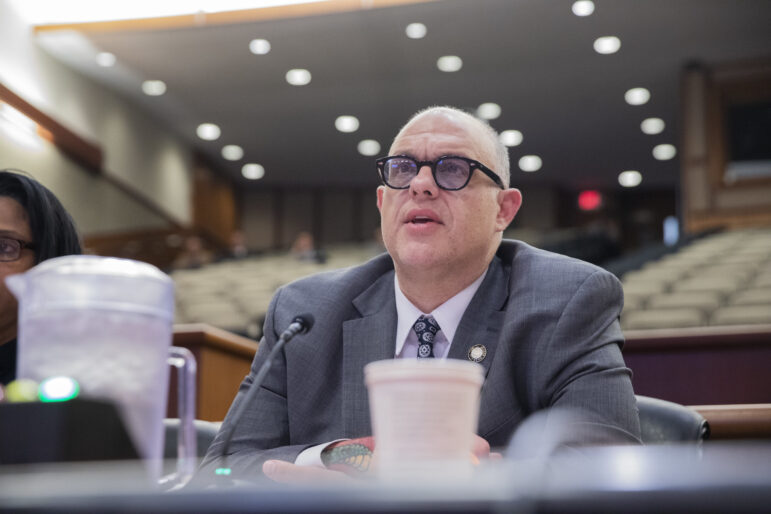State officials are considering temporarily cutting people from the welfare rolls if they reach the federal five-year time limit, City Limits has learned.
In an obscure regulatory change announced for consideration in mid-October, the State Office for Temporary and Disability Assistance put forth plans to require families to submit a new application—and endure a 45-day waiting period, without cash support—in order to enroll in Safety Net, the state program that provides continuing cash assistance to those who have reached the federal time limit. If the plan is adopted, eligibility requirements would remain the same and families already covered by Safety Net would not be affected.
“We have a lot of families who are going past the five-year time limit, and who we think—and the counties think—haven’t been forced to do enough to help them go off of cash welfare,” said OTDA Commissioner Robert Doar. “We want there to be a sense of urgency, both in these folks and the counties. It’s in the best long-term interest of families that they take advantage of supports for working people and move off cash assistance and [find] work,” said Commissioner Doar.
At its core, the move underscores a tension still present a decade after welfare reform: Is it better to continue providing assistance to the dwindling number of those who stay on the rolls, or should the state step up efforts to discourage the receipt of benefits?
Advocates for the poor are adamant that the change could throw thousands into chaos. “There are some folks who will not be self-sufficient, and to pretend that everybody can be is not realistic,” said Jillynn Stevens, director of policy, advocacy and research at the Federation of Protestant Welfare Agencies. “What happens to these people [during the] 45 days? It’s not as if the family’s needs disappear.”
That’s a sentiment the agency seemed sympathetic to back in 2001, when state officials first created the “seamless” application process to avoid disrupting benefits. An agency directive at the time said the wait-period was being waived “on the assumption it could cause an emergency.” Commissioner Doar said the agency was concerned about the bureaucratic nightmare of being inundated tens of thousands of applications, a situation now obviated by the declining number of transfers. Roughly 6,500 families now make the transition between programs each year, down from more than 50,000 in 2001.
OTDA will be taking comments on the changes until Dec. 3, and expects to have a new regulation in place as early as February. Though the city has yet to make formal comments, state officials said they have been speaking informally about the measure. The city did not respond to calls by press time.
The state has one consolation to offer wary advocates, said Doar: “All other forms of assistance would be uninterrupted except for the cash benefit,” he said, citing child care, Medicaid and food stamps.
That was little comfort to Sandra Williams, a mother of two who recently transferred into the Safety Net program after hitting her five-year limit. “People already know that they don’t want to be on welfare for [that] long,” said Williams, co-chair of Community Voices Heard, a welfare rights group. “You need the cash to maintain your household. To just drop and close my case means everything is jeopardized,” she sighed. “What would be the benefit of that?”








